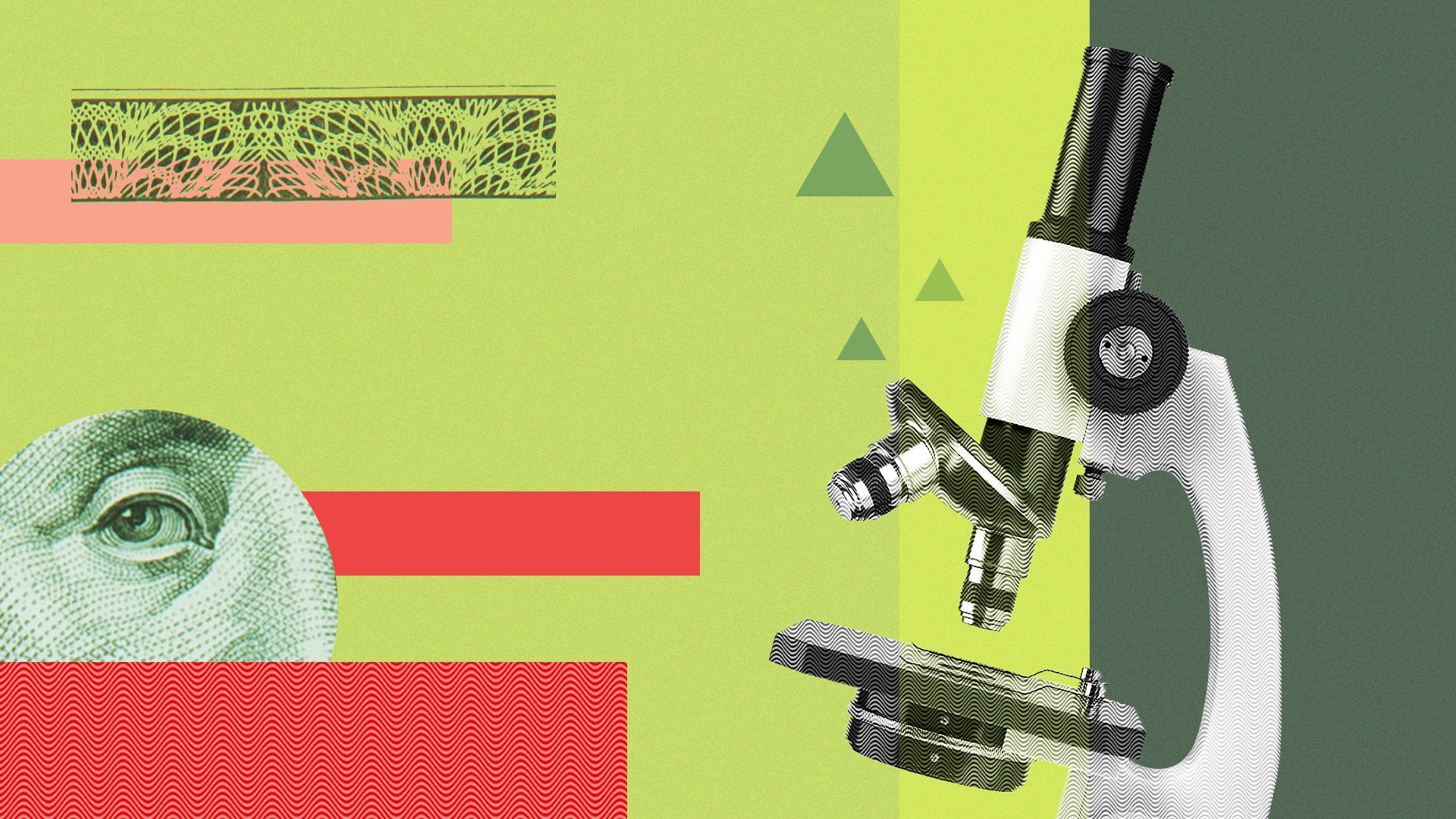
Illustration: Gabriella Turrisi/Axios
Modest drug pricing reforms aren't likely to squelch pharmaceutical innovation or jeopardize the future health of Americans, researchers from the USC-Brookings Schaeffer Initiative for Health Policy write in a new post.
Why it matters: Drugmakers have long claimed that controlling the price of their products would result in fewer new cures — a "nuclear winter" argument that could be revived as Congress eyes a slimmed-down Build Back Better package that includes drug cost reforms.
What they found: Big drug companies boosted spending on shareholder payouts and stock buybacks much more than they did on R&D in recent decades, USC-Brookings scholars Richard Frank and Kathleen Hannock write.
- Much of the R&D is directed at extending the franchises for existing blockbuster medications and doesn't actually involve new drugs.
- Emerging biopharma companies that spend less than $200 million a year on R&D account for much of the market innovation.
The other side: Pharmaceutical Research and Manufacturers of America, the drug industry trade group, points to research that concludes government price-setting chills venture capital funding and investment in late-stage research.
- "The continued downward pressure on prices in Europe has led to declines in biopharmaceutical industry investments in the [European Union] relative to the United States," the group states.
